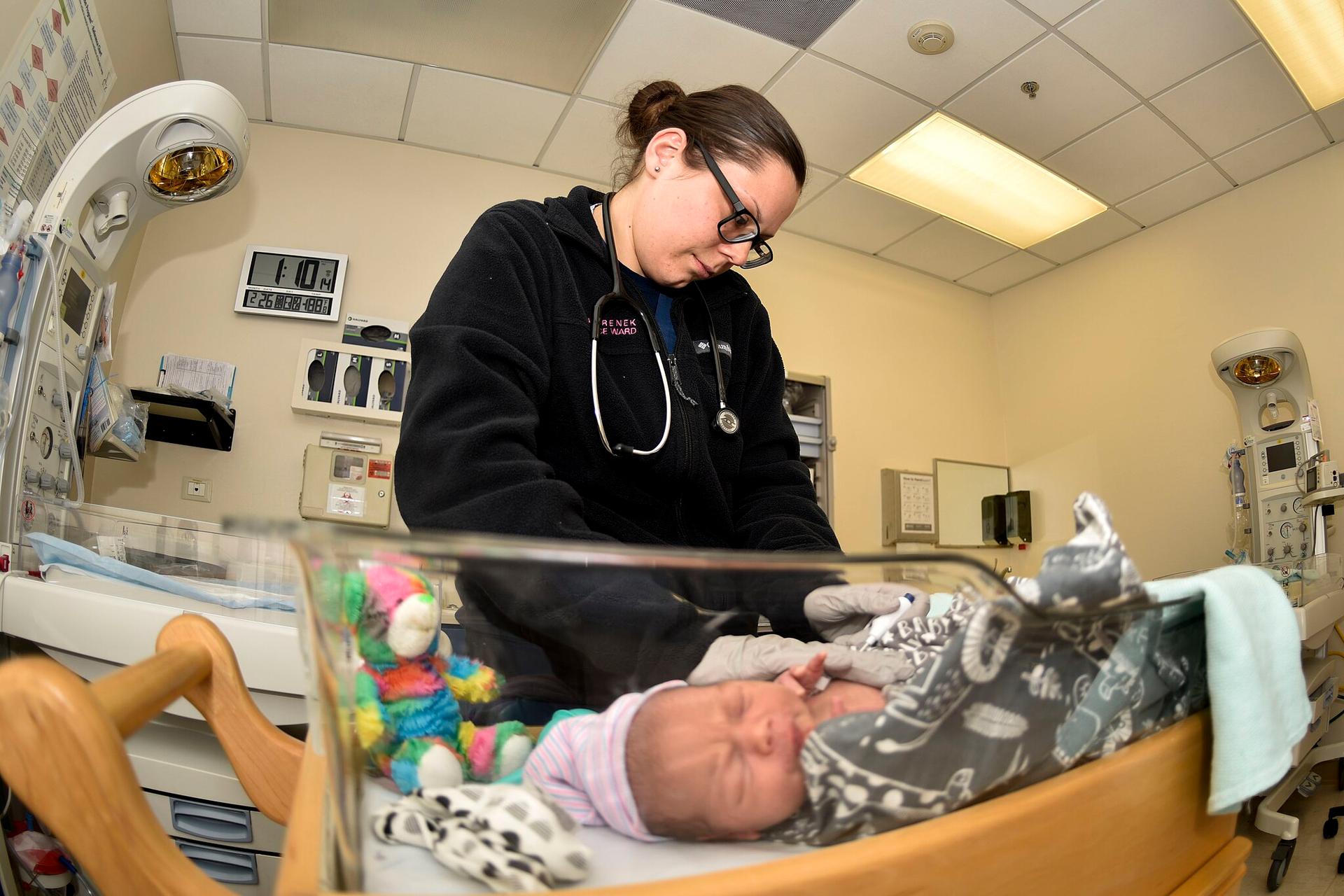
COLUMN: Let’s extend postpartum care for new moms
“If we’re serious about being a pro-family state, we need to step up.” Here’s how you can step up.
This column is from The Recombobulation Area, a weekly opinion column and online publication founded by Dan Shafer, now part of the Civic Media network. Learn more about The Recombobulation Area and subscribe here.
If you’ve had children, you know those first few months are a blur. It’s a time of endless diaper changes, months of waking up in the middle of the night to change a wet baby, feed, or softly sing to and rock as you pray they nod off — so you can too.
And if you’re a woman, you know you’re also dealing with your own recovery. Sitting up to nurse (I used a donut pillow for the first few weeks), putting on “real” pants, walking to the mailbox, wearing a bra with sore and chapped… (I’ll leave it there) — none of it is easy or feels good. I haven’t even mentioned the hormonal changes and general overwhelm new moms experience in that first year. And just when you start to find your footing, you realize your postpartum Medicaid coverage disappears after 60 days.
Wait—what? Just two months of coverage for something that can affect a mother’s health for years? That’s barely enough time to get through maternity leave (if you even have it), let alone manage the emotional and physical rollercoaster of postpartum recovery.
Wisconsin can – and should – fix this.
Right now, Wisconsin and Arkansas are the only states that haven’t extended postpartum Medicaid coverage to 12 months. That’s not exactly a club we want to be in, and it’s looking like Arkansas is going to leave us in last place.
But here’s the good news: there’s a bipartisan — yes, bipartisan — bill in the state legislature (Senate Bill 23) with 65 members already signed on. The only thing stopping this from becoming law? A few critical Republican holdouts.
We the people need to make this cause too big for them to ignore.
For those who are more financially-minded, let’s look at the ROI on this investment. A healthier postpartum experience means fewer visits to the emergency room and less reliance on long-term interventions down the road. Women who receive proper care and resources are more likely to reenter the workforce, therefore reducing dependency on government assistance programs.
To put it plainly:
- Healthier moms mean healthier babies. Consistent postpartum care leads to better long-term outcomes for both mother and child.
- It saves money. Untreated postpartum health issues lead to ER visits and costly long-term interventions. Investing in healthcare early saves taxpayers in the long run.
- It helps Wisconsin’s workforce. Moms with access to healthcare are more likely to return to work, reducing reliance on government assistance.
- It’s what the experts recommend. I watched the most recent Senate Health Committee hearing this week where we saw doctors, religious groups, moms and both Republican and Democratic lawmakers who all spoke in favor of extending postpartum coverage. Not a single person spoke against it.
According to the Wisconsin Department of Health Services, Medicaid currently covers 40% of all births in Wisconsin, meaning that nearly half of all new moms suddenly see an abrupt end to quality postpartum care when they are most vulnerable. Extending postpartum Medicaid coverage, doesn’t just support those new mothers — it positions Wisconsin as a state that values both humanity and fiscal responsibility.
This Is Our Moment—But We Need Your Help
Certain Republican leaders are blocking this bill from getting a vote in the Assembly, despite the overwhelming bipartisan support. If we’re serious about being a pro-family state, we need to step up.
Here’s what you can do right now to push this over the finish line:
- Email your Assembly representative and state senator (find yours here). Tell them you support extending postpartum Medicaid to 12 months and ask them to sign on to the bipartisan bill (if they haven’t already). It’s likely to pass the Senate, but hasn’t yet, so start there. But, more importantly, urge those on the Assembly side to sign on and to pressure Speaker Vos to bring the bill to a vote — and send an email to Vos himself if you’re so inclined! (He’s the one holding this up and deserves to hear from constituents across the state)
- Call their offices. A phone call makes an even bigger impact than an email. Let them know this is a priority for Wisconsin families.
- Spread the word. Share this issue with your networks, on social media, and with community groups. The more people speak up, the harder it is to ignore.
Children are our most precious resource. And supporting new mothers raising those children isn’t merely a kindness; it’s an investment in our collective future. If Wisconsin truly values families, we need to put our money where our mouth is.
In a time when division seems to be the norm, this issue could be a unifier — a golden opportunity for both parties to come together. Forging a bipartisan approach allows our state representatives to demonstrate that caring for new moms transcends party lines and rallies us around our shared humanity.
Extending postpartum Medicaid coverage could be that rare win-win, a chance for us to say, “Hey, we might not agree on everything, but we can agree that a mother’s well-being impacts us all.”
Let’s get this one thing right, Wisconsin.
Want More Local News?
Civic Media
Civic Media Inc.
The Civic Media App
Put us in your pocket.